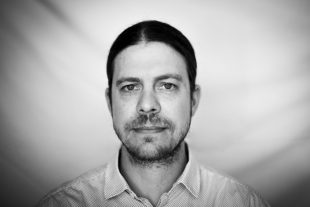For eight months I’ve held a new title, no longer “Student” at Washington and Lee but now “Digital Humanities Post-Baccalaureate Fellow” in the W&L Library. In this position, I’ve contributed to the development of a new initiative called Rewriting the Code: Women and Technology, aided in the promotion of W&L’s new Digital Culture and Information (DCI) minor, and explored the university’s decision to adopt coeducation in the mid-1980s.
Rewriting the Code is a cross-departmental, collaborative effort which aims to inspire women at W&L to pursue majors, careers, and interests at the intersection of technology and the humanities. We started with two fall workshops, one covering HTML/CSS and the other on Python. After receiving double the number of applicants (60!) as spots available, we decided to host a second round of these workshops during the beginning of winter term. Coming up, we will be hosting a forum that includes a keynote presentation on March 1 and panel discussions on various topics, plus a mentoring lunch, on March 2. I have spent a significant portion of my work time aiding in the planning and execution of these events.
My work for DCI has primarily involved encouraging students, through the use of social media, to sign up for DCI classes. The goal is to have some of these students declare the minor after trying out the classes. In both the fall and winter terms, we have seen most DCI classes nearly full or at maximum capacity (and a couple with long waitlists, too!). It is exciting to see the enthusiasm students, and especially the underclassmen, have for DCI classes and the valuable skills they get to learn.
Researching the coeducation decision has allowed me to explore the vast holdings of W&L’s Special Collections. I have learned that it is very easy to begin skimming through documents in a folder, realize it is unlikely I will find any information related to coeducation within those documents, but be so intrigued by what I’m reading that I continue looking through it anyway. Nonetheless, the (re)discoveries that are made related to coeducation as I search through our collections is exciting for me and the other staff members who work in Special Collections. Although this project still has considerably more work to be completed before my one-year appointment comes to an end, before I leave I expect to have a website created with digital facsimiles of a variety of different types of documents related to coeducation and the experience of women at W&L more generally.
So, what is a post-baccalaureate fellowship? These types of positions are typically open to graduating seniors or recent graduates (those who graduated within the past one to three years) and are relatively short in duration (one or two years). Post-baccalaureate fellowships provide a great transition for students and recent grads because they offer the opportunity to gain hands-on work experience as well as mentorship from colleagues. For myself in particular, I believe that this position has been able to provide me with valuable experience as I transition from college life to the working world. Although I worked over the summers while in college, I didn’t have the “traditional” W&L internships, especially before my senior year. Instead, during the summer of 2017, I helped my mother remodel our house and equestrian property before selling it later that year. In my spare time, I worked for the government, visiting farms in the area to talk to farmers and collect data about their crops and livestock. While I felt that I had a productive summer in my own way, the feedback I received in interviews during my senior year was often along the lines of, “It seems like you are capable of accomplishing many things, but we don’t have enough solid examples of your ability.” This position allows me to demonstrate my skills through the projects I’m completing. While I did have a work study position as a student, I have considerably more responsibility now, aiding in the planning, organizing, and promotion of our various events and other projects on campus. Unlike with my work study position, I am able to be a part of these projects from start to finish.
Further, this type of position also benefits current students who get to participate in the events that are occurring through my work. For example, Rewriting the Code is a brand new initiative this year, yet over 60 women will have been impacted in some way through the workshops we held. Even more will benefit once we hold the forum in March. The coeducation project is also involving students to research issues important to them. Currently, a student is aiding in the development of a background story and oral histories on Asians, Asian-Americans, and exchange students (with a focus on women) to add to our collective knowledge about the impact of coeducation.
I also have discovered this fellowship to be an easier transition to life after college, as I’m already in a place where I am comfortable. Although at times it feels strange being an employee at W&L while still having friends who are students, much of the culture that I became accustomed to as a student is the same. This has made it easier to focus on my work tasks without being concerned about adjusting to a new company culture.
Although I have yet to decide where my path will take me after this fellowship ends, I feel confident in the skills I’ve gained and demonstrated through my position. I’m also excited about the impact of my work, in particular with the Rewriting the Code initiative. In the future, I hope to see more opportunities for other students to have experiences similar to mine.
– Kellie Harra ’18, Digital Humanities Post-Baccalaureate Fellow
